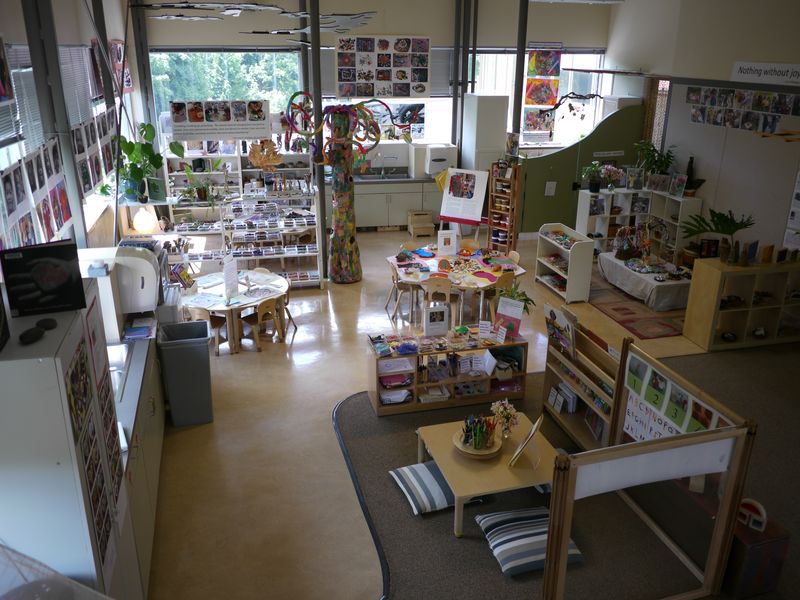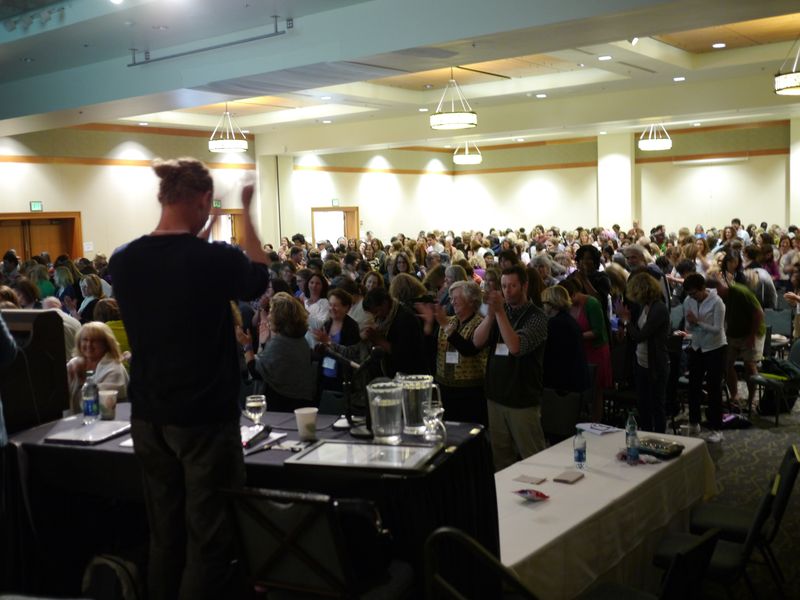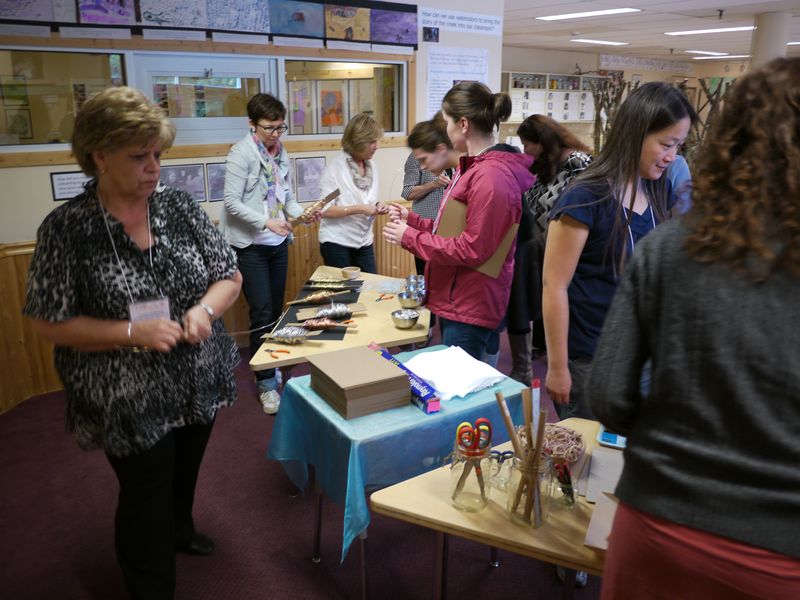NAREA Summer Conference

From June 22 – 24 we were hosts to roughly 500 international guests who were in attendance at the North American Reggio Emilia Alliance Eighth Summer Conference: Giving Visibility to Creative Thinking and Collaboraiton in our Schools and Communities. On June 21, the Pre-Conference, Mentoring Possibilities: Exploring how quality mentoring experiences support the growth and development of teachers, was hosted by the Museum's Center for Children's Learning. I am still recovering from this heart and mind-filling, inspiring, busy big event!
At this year's conference, we heard from Vea Vecchi, Amelia Gambetti, Tiziana Filippini of Reggio Children and the the municipal preschools of Reggio Emilia, and Peter Byworth and Federica Parretti, dancers who work with parents, teachers and children in Reggio Emilia.
Towards the end of the conference, Tiziana Filippini quoted Jerome Bruner: There is no life if you don't tell it. She was reflecting on the process of creating documentation for The Wonder of Learning exhibit, and in the course of her telling about the process of documenting the columns project, she said that the children had discovered (read with an Italian accent here) when you finish to run, there is nothing there. Ah! So isn't that just the thing about it. We tell because if we don't tell, we have nothing.
This conference renewed for me, not just the importance of telling, but the framing of the telling, the interpreting, the connecting, the meaning-making. How we choose to spend our one wild and precious life has so much to do with how we choose to share it. Early in the conference, Amelia Gambetti spoke of the extraordinary potentials of children. How do we support one another as educators and parents to take a stance that expects the extaordinary and invites the telling of how the extraordinary experience the world? How do we respond with the telling of our own experience so that we can continue to evolve together — transcending but including what has come before? How do we connect our theory and our practice? What does support look like for educational environments that intentionally expect the connection between thought and action? I think it looks like listening, reflection, and documentation.




It was such a joy to visit your school – I was quite in awe of all that you are doing!
Fabulous conference. What a terrific amount of work you all did to welcome us!